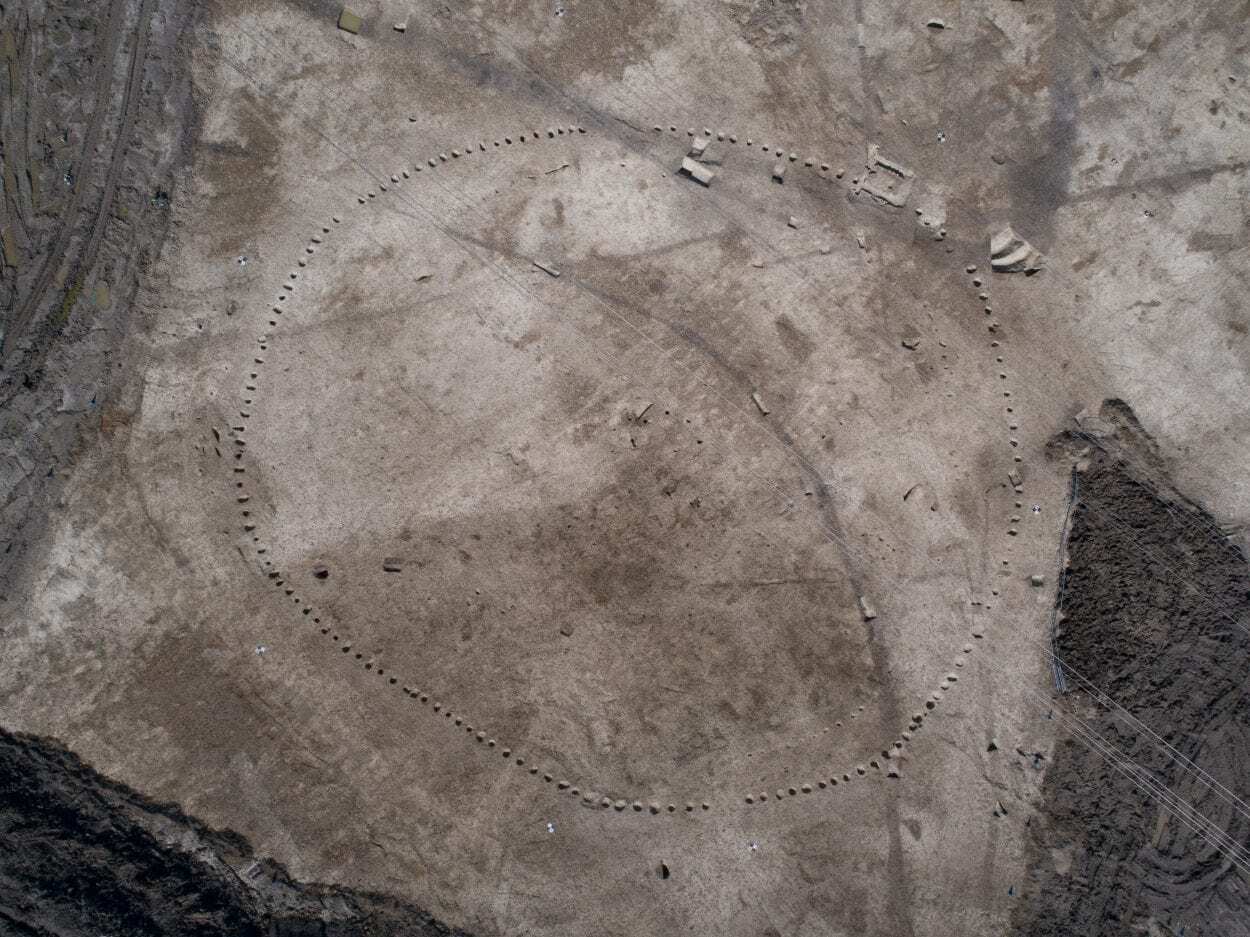Archaeologists carrying out excavations as part of the HS2 project at Wellwick Farm near Wendover, England have announced the discovery of a skeleton that was buried facedown with their hands bound together under the pelvis.
The burial was found at an Iron Age site that dates from around 4000 years ago, with further archaeological evidence of human activity that dates from the Neolithic to the Medieval period.
Dr. Rachel Wood, Project Archaeologist said: “The death of the Wellwick Farm man remains a mystery to us but there aren’t many ways you end up in a bottom of a ditch, face down, with your hands bound. We hope our osteologists will be able to shed more light on this potentially gruesome death.”
Evidence of Bronze Age and Iron Age domestic occupation at the site has been indicated by at least one roundhouse and possible animal pens and rubbish pits. In a square enclosure on the site, archaeologists discovered a skeleton in a coffin that was lined with lead, with the outer coffin likely made of wood. Archaeologists believe that the buried individual must have been someone of high status as they had the means to pay for such an expensive method of burial.
The team also uncovered a large circular monument consisting of wooden posts like Woodhenge in Salisbury Plain, that is aligned with the winter solstice and measures 65 metres in diameter.

Dr. Rachel Wood added: “The large wooden ceremonial structure, the Roman lead burial and the mystery of the skeleton at Wellwick Farm helps bring alive the fact that people lived, worked and died in this area long before we came along.”
Header Image Credit : HS2





